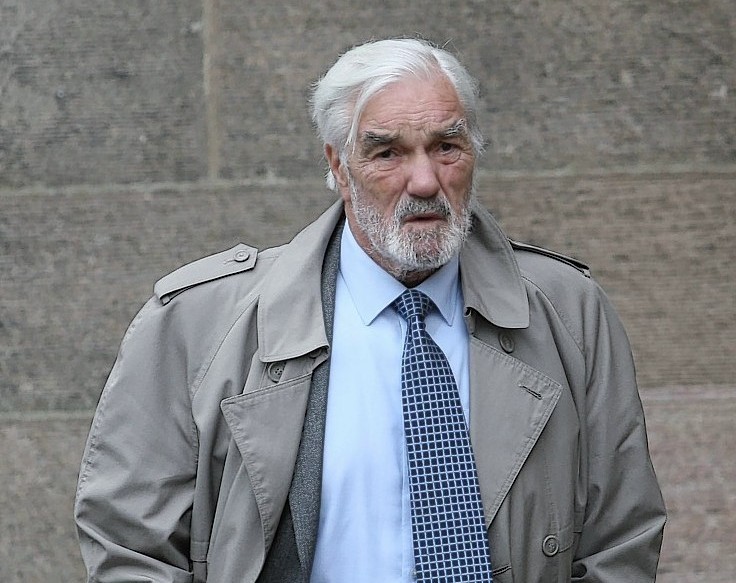A former police superintendent found sitting in his car with his eyes closed and three open bottles of vodka beside him has been acquitted of refusing to take a breath test.
Retired Alan Moir would not get out of the vehicle and had to be handcuffed and forcibly removed by two constables.
Then the 71-year-old suspected drink-driver struggled with the officers and refused to blew into an intoximeter machine at Inverness police station.
Constables John Murphy and Peter Halling were alerted by members of the public at Tore Stores that Moir was smelling of alcohol and unsteady on his feet when he drove there to buy vodka.
About 40 minutes later, they traced him to his Redfield Lodge home at Redcastle on the Black Isle, where he was “sleeping” in his car.
Three vodka half bottles were found in the car – one empty, one half empty and the third three-quarters full.
But after the officers gave contradictory evidence that it was the other who had read Moir his legal requirements to give two samples of breath, Sheriff Gordon Fleetwood found the charge of refusing to give breath specimens not proven.
He also, however, criticised the former senior policeman’s attitude.
He told Moir: “Despite what personal view I have about your conduct that day, I find you not proven.”
He supported defence lawyer Alison Foggo’s claim that the constables’ evidence was unreliable because they had forgotten which one of them had carried out a vital piece of police procedure.
The two officers said during Moir’s trial at Dingwall Sheriff Court that he had slurred his speech as he gave his details outside his home on May 20 last year.
He then refused to get out of the car and give a breath test.
Constable Murphy said: “We had to handcuff him and use a degree of force to get him out of the car after he refused the test.
“When we got to the police station, he was again unco-operative and struggled with us
“He was taken to a room to administer the iontoximeter test but again he refused. He was asked again but said no.”
Constable Murphy said Constable Halling had read Moir the legal requirements for giving breath, but Constable Halling told the trial it was his colleague.
Constable Halling said Moir was at all times unco-operative.
He said: “At one point in his driveway, he was shouting at us, wanting to know our ages and length of police service.”
Giving evidence Moir said he had consumed about three malt whiskies before driving to the shop to buy vodka.
He claimed he was not drunk and witnesses who reported him were mistaken.
Moir also disputed the officers’ claim that he was asleep in his car.
He said: “I was relaxing in my car, enjoying a pleasant sunny afternoon listening to the birds and consuming the spirits.
“I admit I was intoxicated when they (the police) arrived, but not when I went to buy the alcohol.”
He said he was annoyed because the officers would not listen to his explanation.
“At police college, we were always taught to listen. They didn’t and treated me in a cavalier fashion.
“It was alien to me to be handcuffed. At no time did they follow the three procedures.
“I can’t explain why. I don’t know them and didn’t serve with them, so they couldn’t have borne a grudge.
“I would have agreed to give the specimens if I had been asked in the proper manner.”
Moir made no comment as he left the court.
Margaret Dekker, secretary of Scotland’s Campaign Against Irresponsible Drivers, said: “Our position is that if someone refuses to take the test then it should be taken as positive and an admission of guilt.
“This has gone to court and not resulted in a conviction, which is not a good example to set to others.
“The police certainly have something to answer for in this case because of what happened.
“But our main argument is that a refusal should be taken to mean they are pleading guilty and that eliminates the need to go to court.”
